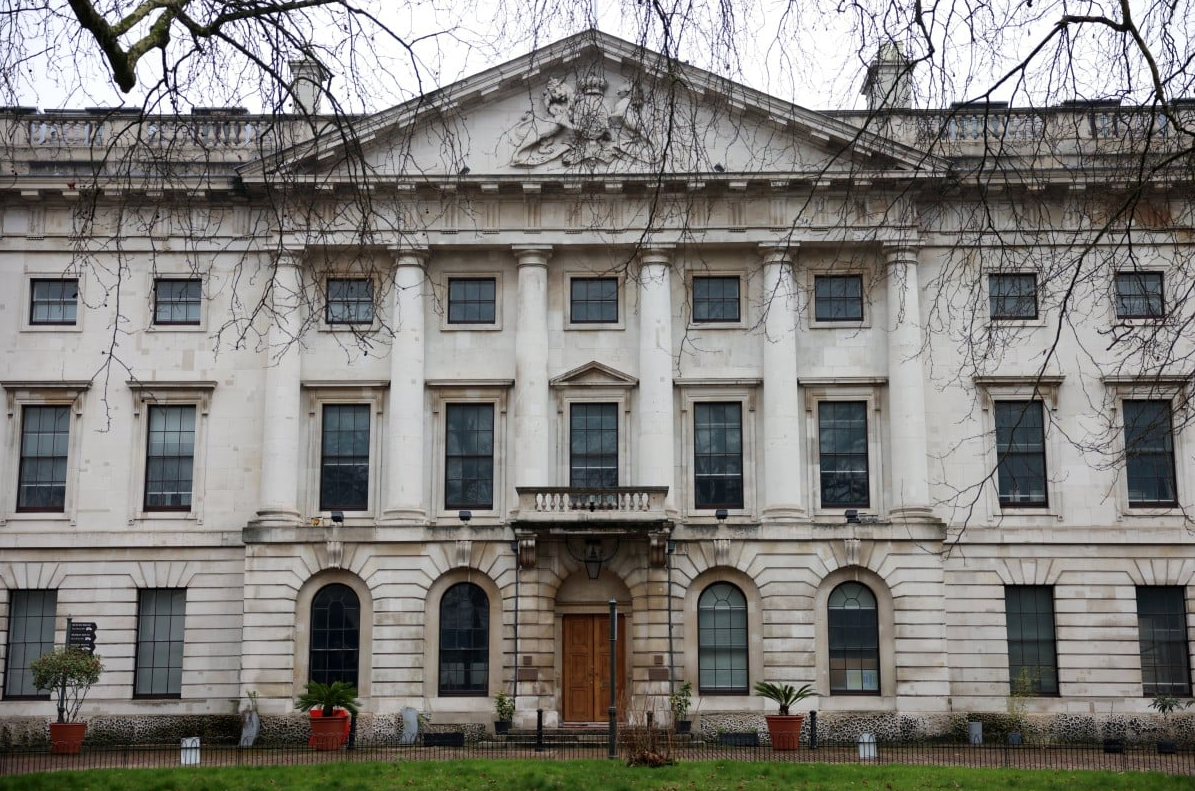The UK will review security risks over China’s planned embassy in London after warnings from Donald Trump and concerns about espionage.

London, UK. (WE) — The United Kingdom has promised a full security review of a proposed Chinese embassy near the City of London. The controversial project, located at Royal Mint Court, has sparked diplomatic friction, especially with the United States. Former U.S. President Donald Trump warned Prime Minister Keir Starmer not to let China construct what he called a “mega-embassy” near key financial hubs. Notably, the plan returned to the table after lobbying from Chinese President Xi Jinping.
According to the Sunday Times, the embassy proposal has become a topic in U.S.-UK trade talks. Trump administration officials reportedly fear that placing a Chinese diplomatic mission near sensitive communication infrastructure could compromise intelligence sharing. One senior U.S. official told the paper that the U.S. is “deeply concerned about providing China with potential access to the sensitive communications of one of our closest allies.”
In response, Technology Secretary Peter Kyle said on Sky News that the UK will give a “fulsome response” to security concerns. “We deal with embassies and these sorts of infrastructure issues all the time,” Kyle explained. As a member of the Five Eyes alliance, the UK shares intelligence with the U.S., Canada, Australia, and New Zealand. “If people raise security issues, even related to planning, we’ll respond properly,” he added.
Meanwhile, Chris Philp, the Shadow Home Secretary, agreed with U.S. concerns. He warned that China could use the embassy for espionage. He also pointed to past behavior by the Chinese government, including surveillance of dissidents and running alleged secret police stations in the UK. “We’ve even seen bounties placed on dissidents, some of whom I’ve met personally,” Philp said. “We shouldn’t approve this embassy.”
In 2022, Tower Hamlets Council rejected the embassy plan. Local officials cited security concerns and community opposition. More than a thousand protesters rallied this year to oppose the embassy’s location near Canary Wharf and the City of London. After the council’s refusal, the UK government “called in” the decision. As a result, final approval now lies with the national government, pending a report from the Planning Inspectorate.
The Chinese government purchased the Royal Mint Court site in 2018. It plans to build the largest Chinese embassy in Europe—about 20,000 square meters—next to the Tower of London. President Xi and Foreign Minister Wang Yi personally pressed the UK to approve it. However, Beijing has rejected accusations of espionage, calling them “slander.”
Additionally, Sir Richard Dearlove, former MI6 chief, said placing a Chinese mission so close to vital communication links is risky. Critics say China could exploit its location to tap into fiber-optic cables that carry critical data. These connections support London’s financial systems and government networks.
The embassy debate arrives at a delicate time. The UK wants to finish a U.S. trade deal by July 9, a deadline tied to China-related concerns. One issue is British Steel, which is owned by Chinese firm Jingye Group. The U.S. reportedly wants the UK to address its concerns about this ownership before the deal can move forward.
Read More:
- Colombian Presidential Candidate Miguel Uribe Turbay Shot During Campaign Rally in Bogotá
- Russia Launches Massive Drone and Missile Strikes on Ukraine After Kyiv’s Deep Drone Attacks Inside Russia
- Countries Condemn Trump’s Travel Ban and Promise Strong Response
Furthermore, senior U.S. figures, including Commerce Secretary Howard Lutnick and U.S. Trade Representative Jamieson Greer, are in London this week for talks. They’re meeting with China’s Vice Premier He Lifeng. At the same time, Chancellor Rachel Reeves and Foreign Secretary David Lammy continue their engagement with Beijing.
The embassy project is also controversial at home. For example, human rights groups including Free Tibet and Hong Kong Watch protested at Royal Mint Court earlier this year. They fear the embassy would expand China’s surveillance reach. Moreover, Conservative MPs like Priti Patel have spoken out against the plan, citing national security.
As a result, the UK government said it will carry out a full review of the site’s implications. That includes consulting with MI5, the Home Office, and the Metropolitan Police. Deputy Prime Minister Angela Rayner will make the final call with input from intelligence agencies.
Security experts argue this isn’t just a planning matter. Rather, it’s about geopolitics and global espionage. MI5 previously warned Parliament about Chinese interference through agents like Christine Lee. Consequently, these warnings have led many officials to fear a repeat at Royal Mint Court.
Meanwhile, China continues pushing for embassy approval. The Global Times, a Chinese state-run outlet, accused the U.S. of politicizing the issue. It claims opposition to the embassy is driven by anti-China rhetoric, not facts. But British officials remain cautious.
Even with diplomatic pressure from both Beijing and Washington, Peter Kyle insisted the UK has clear rules. “These decisions are routinised,” he said. “Security always comes first.”
Ultimately, the final decision is expected this summer. It will test the UK’s ability to navigate global tensions while protecting its national interests.